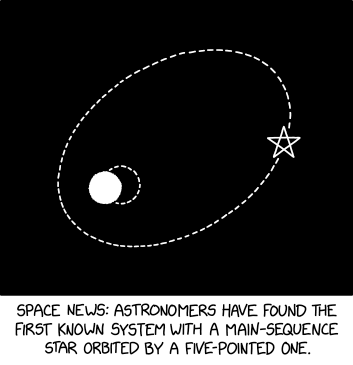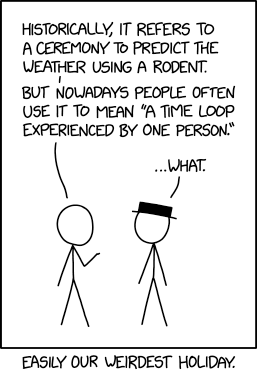Posted by Athena Scalzi
https://whatever.scalzi.com/2026/02/05/the-big-idea-justin-c-key/
https://whatever.scalzi.com/?p=59358

A good beside manner makes all the difference in your medical care. So how polite could a robot doctor or AI nurse be? Justin C. Key makes the argument that human connection in medicine is an absolute requirement, and empathy should be all the rage amongst hospital staff. He took this attitude into the creation of his newest novel, The Hospital at the End of the World. Grab you insurance card and come see how connection and community are some of the best medicines.
JUSTIN C. KEY:
It’s hard to keep your humanity in medical training.
It’s a potent thought considering the AI war brewing. We have a process of training doctors that desensitizes, burns-out, and enforces systemic biases. If we’re training people to be robots, why not let the actual robots do it better?
In crafting this book, I set out to make a case for the opposite.
I’m a science fiction author who happened to go to medical school for the same reason I’m drawn to writing: the belief in the inherent value of human connection. I learned early in my medical journey that our healthcare system makes it very difficult to uphold this value. Physicians are overworked, bogged down in red tape, swimming upstream against a for-profit insurance system, and have too many patients and not enough time.
Then there’s the training itself. I didn’t like medical school. I didn’t like the hierarchy. I didn’t like the glorification of battle scars. I didn’t like the environment that pushed my classmate to suicide just months before graduation. Though my alma mater did great work in teaching the art of medicine and the importance of being with your patient, the core culture remained.
It wasn’t until I’d gotten my degree, had some years of autonomous patient care under my belt, and had the chance to process my experiences through my writing that I realized how magical it is to become a healer. No, not in an elitist or ‘holier than thou’ way. But the privilege to build a partnership meant to enhance a human life and, in a lot of cases, save it.
My first novel follows young medical student Pok Morning. There’s the premise you’ll get on the jacket cover and in the pitches and in the interviews—AI vs medicine, who will prevail?!—but as the larger, existential battle rages on, Pok still has to navigate the brutal process of becoming a doctor. How could I strike the balance between my perceived experience and later reflections? I was also asking a deeper, more introspective question: how did I come out of training valuing human connection so much when the process could have very well stripped me of that?
The importance for humanity in medicine isn’t a given. With delivery and mobile apps, we are more and more disconnected from the people with whom we exchange services. And one can’t deny that there are some tasks a cold, calculated machine might be suited for. Even then, usually the best result comes from a pairing with human intuition. I wouldn’t knowingly get on a plane that didn’t have both an experienced pilot and a functional autopilot computer system. Would you?
And then there’s the risks of having a human in the driver’s seat. Computers can’t drink and drive. They can’t be distracted by texting. They can’t forget to check a burn victim’s throat for soot just because a cooler case rolled by in the ER (yes, I literally just rewatched THAT Grey’s Anatomy episode).
And thus winning the war of AI vs medicine is less about showing the flaws of AI (and trust, there are many and if I were an AI I’d make up a fake statistic to prove that point) but rather in making the case for humanity’s value. The most rewarding part of medicine—certainly for me and I suspect a lot of my colleagues who still hold hope—is helping someone by tapping into our own human parts. Empathy. Perspective. Community. This power is separate from outcomes. The task is easiest (and possibly even in AI’s reach) when the treatment worked and the patient improved. But what about when things go wrong? What about delivering bad news? What about being with someone during the hardest part of their life? There’s value in being seen and heard by another human. if a generated likeness said and did everything right, I’d bet that, for the patient, the experience would be as rewarding as watching a robot win the Olympics (in any category).
And yet . . . our healthcare system leaves little space for quality time between physician and patient. Those seeking help are left feeling unheard, underprioritized, and scrambling for alternative solutions. I fear that AI is going to come in and fill in these gaps (ChatGPT therapist, anyone?). Which is a shame because technology is supposed to relieve a physician’s burden and create more time for deeper connection, not eliminate it altogether. That dichotomy fuels the background of this book. Pok learns the ‘hard way’ of doing medicine while discovering its value.
There’s a moment early on in Pok’s medical school career where he doesn’t do as well as he hoped and feels he’s the only one. That everyone else is doing fine while he struggles. It’s a horrible place to be. I know because I’ve been there. But as the author of Pok’s world, I was able to imagine what it would look like to be lifted up from that, to have such disappointment strengthen community, resolve, and humility. The same way no one gets through illness alone, no one becomes a physician in isolation. The experiences that shape do so through the social lens.
Connection begets connection and that’s why it’s essential that medical education doesn’t exist in a bubble. There’s various levels of socialization, from peer to peer (Pok and his classmates), mentee to mentor (Pok and his professors) and, at some point, mentor to mentee (the student becomes the teacher). Like much of life, these interactions can go well or they can be stressful. They can build up or tear down. The types of community one experiences while becoming a physician can very much inform what they will recreate with their own patients.
The type of medicine I created in The Hospital at the End of the World reflects what I strive to achieve as a physician. How did I put it on the page? By combining the essentials from my own experiences with what I hope will change for future generations of student doctors. Pok, and hopefully my readers, are better for it.
The Hospital at the End of the World: Amazon|Barnes & Noble|Bookshop|The Rep Club
Author socials: Website|Instagram|TikTok
https://whatever.scalzi.com/2026/02/05/the-big-idea-justin-c-key/
https://whatever.scalzi.com/?p=59358

 So, this past week, while perusing my local Japanese goods store in the next town over, I looked at their small sake collection and saw
So, this past week, while perusing my local Japanese goods store in the next town over, I looked at their small sake collection and saw 







